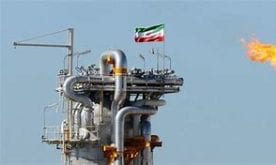Al-Monitor – Hot take: Fallout from New York Times article reveals division, unity on Iran
The New York Times reported this week that “Israel lacks the ability to pull off an assault that could destroy, or even significantly delay, Iran’s nuclear program” and that it could take “at least two years” to develop the capability to do so. The fallout from the article revealed internal divisions over whether Israeli has the military capacity to strike, but also unity on the need to employ military force if necessary to prevent Iran from gaining nuclear weapons.
Background: Israel considers Iran an existential peril, especially if it gets a nuclear weapon. That’s why Israel has been unwavering in its demands that the United States, most recently the Biden administration, maintain all means of pressure — including sanctions and the credible threat of force — to prevent Iran from acquiring one. Israel has never supported the Joint Comprehensive Plan of Action (JCPOA), which relieved economic pressures on Iran in exchange for scaling back its nuclear ambitions. Israel never thought it would work and prefers to see the talks in Vienna among the United States and the parties to the JCPOA fall apart. Defense Minister Benny Gantz said this month that he had ordered preparations for a possible military strike on Iran. That’s why the New York Times piece, citing current and former security officials, was so surprising in its conclusion that Israel might not be able to carry out the military campaign it has so long threatened.
The fallout: Ben Caspit has the scoop and more on the fallout in Israel from the Times piece and what it reveals:
‘Major’ damage: A former top Israeli security officer told Caspit, “The damage of this piece is so major that I think an investigation should be launched to find those quoted and take action against them. They have undermined Israeli national security.”
Shifting priorities: Following the 2015 JCPOA “the IDF diverted significant resources to other arenas, especially to combatting Iran’s entrenchment in Syria and foiling Hezbollah’s high-precision missile project,” Caspit writes.
On Hezbollah: “According to Israeli assessments, Hezbollah would respond to an attack on its sponsor by letting fly everything it has in its arsenals, causing unprecedented damage to Israel’s economy and national morale.”
Agreeing with US timeline: Lilach Shoval adds, “When senior Israeli officials clarify that Israel has enough time to prepare for a strike because Iran still has a long road to develop a nuclear detonator and ballistic missiles, it means that the red line Israel drew in the past has moved a bit. For lack of another option, Israel has apparently accepted the American interpretation regarding the timing of Iran’s nuclear program.”
Iran as campaign issue: Mazal Mualem reports that Israeli politicians, including Likud Knesset member Nir Barkat, who is challenging former Israeli Prime Minister Benjamin Netanyahu’s leadership of the Likud, will use Iran as a campaign issue. Each will seek to run to to the right of the other and an Iran deal has no constituency.
Bottom line: The question of Israeli capabilities is separate from Israeli intent. In Israel, there is no debate about Israel’s commitment to prevent an Iranian nuclear weapon. To the contrary, there is “full consensus” on Iran, as Caspit reports. The Times piece has sparked debate on the means and consequences of doing so, but the priority is a done deal.
Update: Israel’s incoming air force chief Major-General Tomer Bar told Yedioth Ahronoth that Israel is prepared to attack Iran “tomorrow” if required.
 Shabtabnews In this dark night, I have lost my way – Arise from a corner, oh you the star of guidance.
Shabtabnews In this dark night, I have lost my way – Arise from a corner, oh you the star of guidance.



